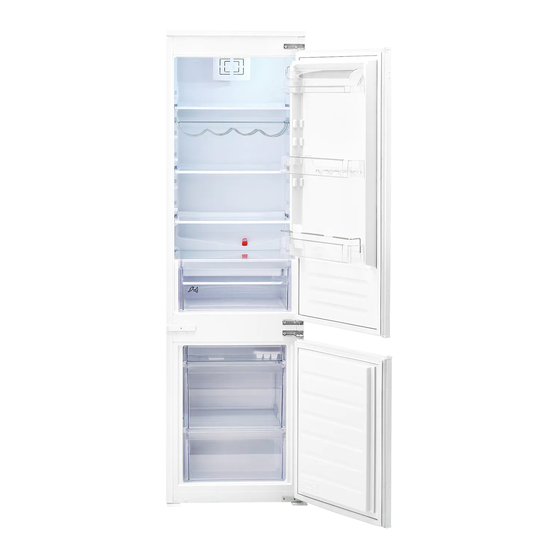IKEA 703.660.53 Руководство - Страница 15
Просмотреть онлайн или скачать pdf Руководство для Холодильник IKEA 703.660.53. IKEA 703.660.53 36 страниц.

ENGLISH
Directive 2012/19/EU, Waste Electrical and
Electronic Equipment (WEEE). By ensuring
this product is disposed of correctly, you will
help prevent negative consequences for the
environment and human health.
The symbol
on the product or on the
accompanying documentation indicates
that it should not be treated as domestic
waste but must be taken to an appropriate
collection center for the recycling of
electrical and electronic equipment.
Energy saving tips
To guarantee adequate ventilation
follow installation instructions. Insufficient
ventilation on back of the product increases
energy consumption and decreases cooling
efficiency.
Frequent door opening might cause an
increase in Energy consumption.
The internal temperature of the appliance
and the Energy Consumption may be
affected also by the ambient temperature,
as well as location of the appliance.
Temperature setting should take into
consideration these factors.
Reduce to a minimum door opening.
When thawing frozen food, place them in
the refrigerator.
The low temperature of the frozen products
cools the food in the refrigerator. Allow
warm food and drinks to cool down before
placing in the appliance.
Positioning of the shelves in the refrigerator
has no impact on the efficient usage of
energy. Food should be placed on the
shelves in such way to ensure proper air
circulation (food should not touch each other
and distance between food and rear wall
should be kept).
You can increase storage capacity of frozen
food by removing baskets and, if present,
Stop Frost shelve, maintaining an equivalent
energy consumption.
Do not worry of the noise coming from the
compressor.
Declaration of conformity
•
This appliance has been designed for
preserving food and is manufactured
in compliance with Regulation (CE) No.
1935/2004.
•
This appliance has been designed,
manufactured and marketed in
compliance with:
- safety objectives of the "Low Voltage"
Directive 2014/35/EU (which replaces
2006/95/CE and subsequent
amendments);
- the protection requirements of Directive
"EMC" 2014/30/EU.
16
